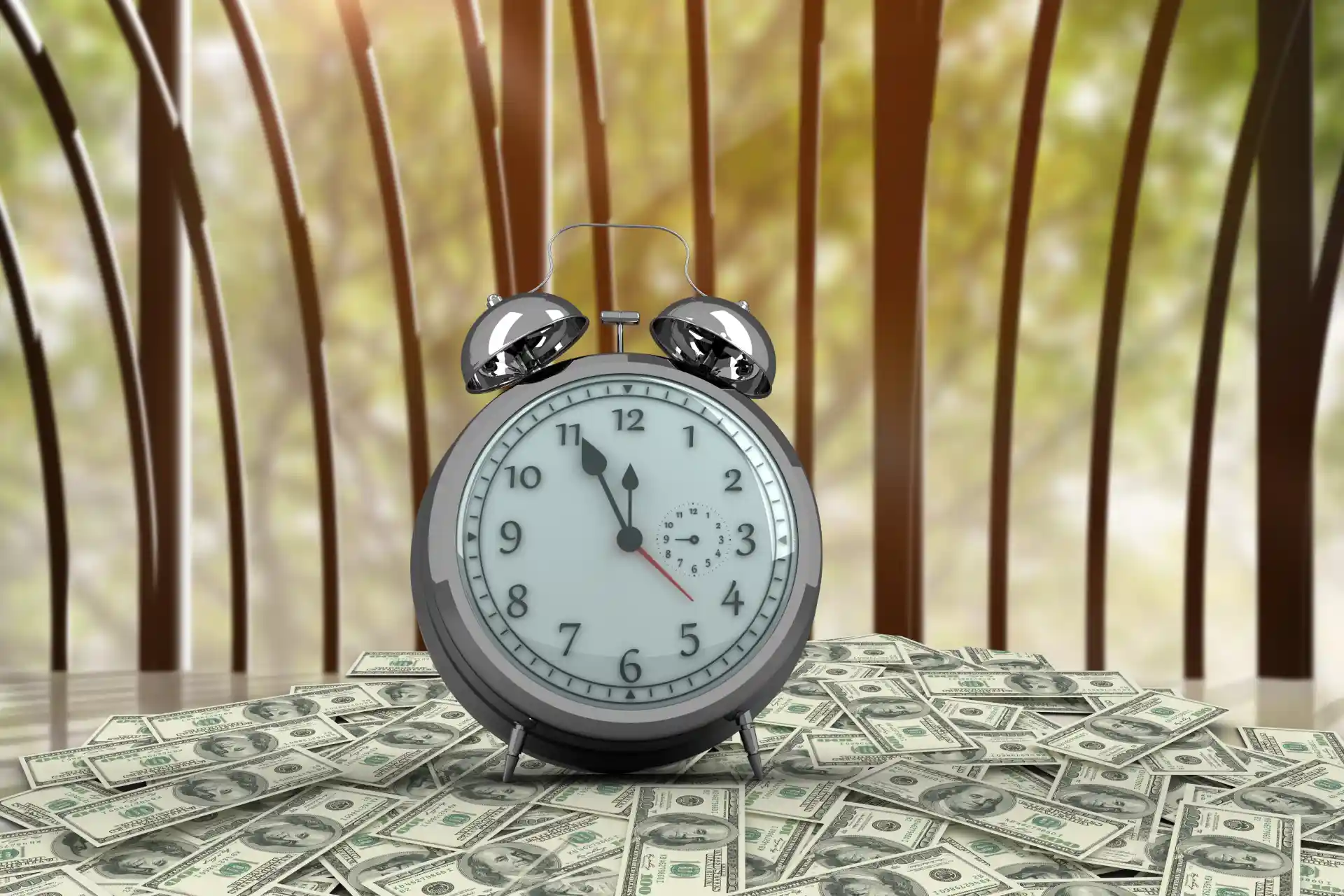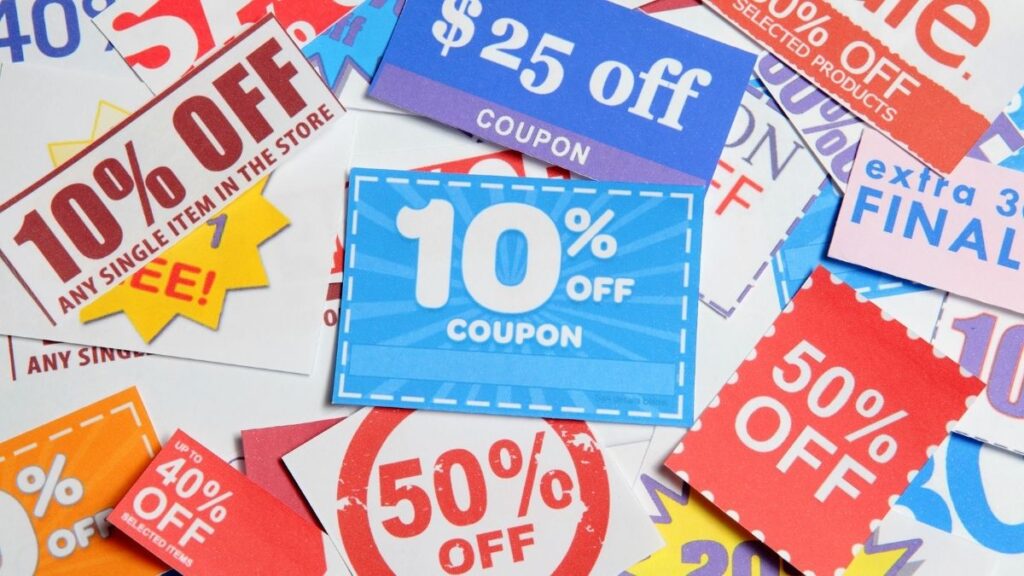
If you spend 20 hours a week couponing to save $40, congratulations—you just paid yourself $2 per hour. Despite popular shows like Extreme Couponing making it look lucrative, most people waste precious time for minimal coupon savings that don’t justify the effort.
This couponing waste of time epidemic has millions convinced they’re being financially smart when they’re actually losing money.
In this article, you’ll discover the real math behind couponing “savings,” why opportunity cost makes extreme couponing counterproductive, the hidden costs and problems with coupon obsession, and better alternatives for saving money that actually respect your time value.
Why Couponing Is Actually Wasting Your Time and Money
You clip coupons thinking you’re being smart with money. You spend Sunday mornings hunting through apps for the best deals. You feel proud when you save $15 at checkout.

But here’s what nobody tells you: couponing might be costing you more than it saves.
The Brutal Math: What Couponing Actually “Pays” You
Let’s do some quick math on your coupon habit.
Most people spend 5 to 20 minutes looking for digital coupons before each shopping trip. That adds up fast. If you shop twice a week, you’re spending 40 to 80 minutes per week just hunting for deals.

What do you get for all that time? The average person saves $10 to $25 per month from digital coupons. That’s it.
Here’s the shocking part. If you spend 15 minutes per shopping trip and save $15 per month, you’re “earning” about $3.75 per hour for your coupon work. That’s half the federal minimum wage of $7.25.
Extreme couponers on TV shows spend 20 to 60 hours per week on their hobby. Even if they save $200 per month, they’re making less than $1 per hour. You could flip burgers and make more money.
Your time has value. When you spend an hour looking for coupons to save $5, you’re working for $5 per hour. Most people can find better ways to use that time.
The Dirty Secret: Coupons Make You Spend MORE Money
Here’s the truth that coupon companies don’t want you to know. Coupons are designed to make you spend more, not less.

Research shows that 38% of shoppers buy more than they planned because they found a coupon. You go to the store for milk and bread. You see a coupon for cereal you don’t need. Now you’re spending $4 extra because you “saved” $1.
Coupons push you to buy things you wouldn’t normally purchase. You stock up on items just because they’re discounted. Your pantry fills with products you never use.
Brand loyalty becomes a trap. You start buying inferior products just because you have coupons for them. Instead of choosing the best value, you choose whatever has a discount.
The math is simple. If coupons made you spend less overall, stores wouldn’t offer them. They use coupons because they know you’ll spend more money, not less.
The Hidden Costs Nobody Talks About
Couponing has costs that don’t show up on your receipt.
Gas money adds up when you drive to multiple stores chasing deals. Storage space in your home gets taken over by stockpiled items. Food expires before you can use it, creating waste.

During COVID-19, many people learned this lesson the hard way. They stockpiled way more than they needed and watched products expire.
The stress affects your relationships too. Extreme couponers on TLC admit to choosing couponing over time with family and friends. Is saving a few dollars worth missing your kid’s soccer game?
There’s also opportunity cost. Every hour you spend couponing is an hour you can’t spend on something else. You could use that time to learn a skill, exercise, or work a side job that pays actual money.
Why Extreme Couponing Is Actually Extreme Hoarding
Extreme couponing looks impressive on TV. But it’s really just hoarding with better PR.
The goal becomes getting free items, not getting useful items. Christy Rakoczy once owned 60 diabetes monitors without having diabetes. She got them free with coupons, so she kept buying them.

When your goal is to save as much as possible, you stop thinking about what you actually need. Your home fills with products you’ll never use. Closets overflow with toothpaste and shampoo.
This creates psychological problems. The thrill of “winning” at coupons becomes addictive. People lose sight of their real needs and focus only on the deals.
The environmental impact is huge too. Overbuying leads to waste. All those “free” products eventually end up in landfills.
The Coupon Industry’s Marketing Manipulation
Manufacturers use coupons to control your buying habits.
Only 0.85% of all coupons get used. Companies don’t care. They make coupons to get you to switch brands and buy things you don’t need.

Most coupons are for processed, unhealthy foods. You rarely see coupons for fresh vegetables or whole grains. The coupon system pushes you toward expensive, unhealthy choices.
Store loyalty programs seem helpful, but they’re designed to make you spend more. They track your purchases and send you coupons for items that increase your total spending.
The whole system works against your best interests. It’s not about saving you money. It’s about changing your spending habits to benefit corporations.
What Your Time Is Actually Worth
Let’s get real about the value of your time.
If you spend 20 minutes searching for coupons and save $5, you’re making $15 per hour. That sounds okay until you factor in driving time, organizing coupons, and planning store trips. Your effective rate drops to maybe $5 per hour.

Compare that to other options. Minimum wage jobs pay $7.25 per hour or more. Gig work like food delivery often pays $12 to $20 per hour. Even simple side hustles beat couponing.
Your time has value beyond money too. Time with family, exercise, learning new skills, or just relaxing all improve your life in ways that saving $3 on toothpaste can’t match.
Smart Alternatives That Actually Save Money AND Time
Want to save money without wasting time? Try these instead.
Use cashback apps like Ibotta, Rakuten, or Fetch. They require minimal effort and give you money back on purchases you were already making. No clipping, no planning, no extra trips to stores.

Buy generic brands. Store brands cost 20% to 40% less than name brands and are often made by the same companies. This saves way more money than coupons with zero extra time.
Plan your meals around sales. Buy seasonal items when they’re cheap. Stock up on things you actually use when they go on sale naturally.
Use credit cards with good rewards programs. Pay them off monthly and earn cash back on everything you buy. No time investment required.
Focus on big expenses. Cut your cable bill, refinance your mortgage, or find cheaper car insurance. These moves save hundreds of dollars per year with one-time effort.
Energy efficiency improvements pay for themselves. LED bulbs, programmable thermostats, and better insulation cut your bills every month without any ongoing work.
Stop Wasting Time and Start Saving Smart
Couponing promises big savings but delivers poor returns on your time investment. It encourages wasteful spending habits and fills your home with things you don’t need.

Your time has value. Use it on strategies that actually improve your financial situation without the hidden costs and manipulation.
Stop cutting coupons and start cutting expenses that matter. Try a cashback app this week and see the difference. Your wallet and your schedule will thank you.





